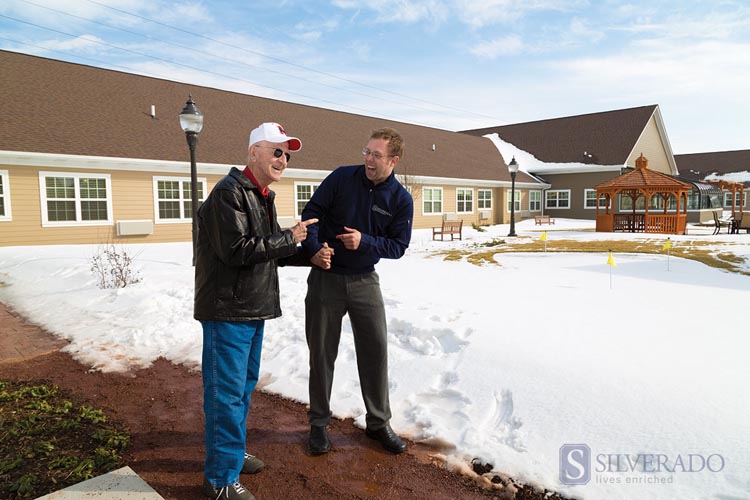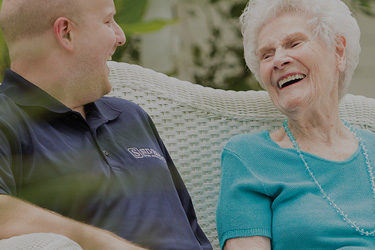
As friends and families prepare to spend time together during the holiday season, we’re pleased to share some valuable today for recognizing memory loss in a loved one.
“As holiday gatherings and festivities abound this year, more so than in recent past, individuals with memory loss and dementia can be easily triggered due to changes in their environment, feeling emotionally overwhelmed or even experiencing a lack of personal space,” said Kim Butrum, MS, RN, GNP, Senior Vice President of Clinical Services for Silverado. “It’s important to recognize potential changes in your loved ones and respond appropriately with support, patience and care.”
Spending time together makes it easier to recognize small changes in behavior of loved ones that could signal the early stages of memory impairment. The most common signs that dementia-related changes may be taking place in the brain include:
- Forgetting new information and important dates or events.
- Difficulty concentrating and following familiar multi-step processes like recipes.
- Confusion using appliances (e.g., microwave or TV remote).
- Getting lost or needing directions to a familiar destination.
- Frequently losing track of dates and the passage of time.
- Difficulties during conversations — repetition, losing their thought, not finding the right word or using an incorrect one.
- Misplacing things, losing the ability to retrace steps and placing things in unusual locations.
- Lapses in grooming and personal cleanliness.
- Withdrawal from work or social activities, interests and hobbies.
- Changes in mood and personality. Becoming confused, suspicious, depressed, fearful or anxious.
- Becoming upset easily in places where they are out of their comfort zone.
While noticing these changes in loved ones can be hard, taking the time to understand the situation is the first step in providing them with the care and support they need. If you suspect dementia-related memory loss, consider these helpful tips for making the holidays special for them:
- Talk about the Past: People with dementia are more likely to retain long-term memories. Use photos or anecdotes to make connections.
- Avoid Corrections: If the wrong name is used or wrong detail provided, avoid correcting them which can cause difficulty refocusing.
- Don’t Overwhelm: Encourage engagements with fewer people, as more than 10 can seem chaotic.
- Embrace Normalization: Involve individuals in the activities and hobbies they know and love, like cooking, puzzles, sports talk, etc.
- Maintain Routines: If traveling, try to stay in familiar environments, keep sleep routines and avoid too much anticipatory planning to prevent added confusion.
During the holidays, it is key to help loved ones experiencing memory loss connect to the joy they felt this time of year. Change is hard for everyone, but recognizing these slight shifts in behavior can help minimize issues and provide an appropriate level of support to ensure quality of life.
Since its founding, Silverado has been providing people living with memory impairing diseases with unconditional love, restoration of purpose and a renewed sense of self-worth, enabling them to live to the fullest until the end of life.


